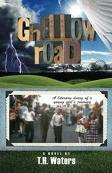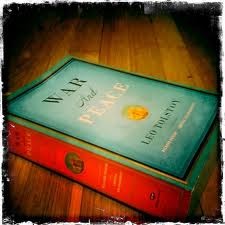 |
The link above offers a "look inside".
Try a taste of Bartok's prose: you'll want more... |
Mira Bartok's memoir The Memory Palace is simply that. Poetic prose meets the fascinatingly sad story of life with her schizophrenic yet brilliant mother, Norma.
The true tale begins when both Mira and her sister Natalia (both of whom changed their names so that their mother could not track them down) return to their eighty-year-old mother's side after decades apart to attend to her as she dies, destitute, of stomach cancer. From there, we return to Myra's early years and to her own memory palace - that visual-poetic mnemonic first taught by Matteo Ricci in 1596 - moving with her from room to room, and from each traumatic experience to each violent catastrophe in her young life.
But what makes this memoir so much richer than - say -
The Glass Castle, with which one might immediately note surface similarities, is
art. And music. And science. And musings on memory itself. And the solace of the natural world, however subtle and quotidian. Woven into the intense psycho-drama of a family that's clearly been dysfunctional for generations - Mira's grandfather's violent, belligerent outbursts certainly seem father to her mother's psychosis - is an homage to the saving grace of the inquisitive mind, the soul that cannot but open to appreciate the world's day to day wonders.
Illustrations and beautifully apt quotations deepen the resonance of each chapter, and Ms. Bartok's fluid - often luminous - and sensorily detailed prose hold the reader spellbound throughout. Norma's diary entries are tucked in the interstices between chapters - much as she herself cultivated a habit of tucking pictures behind pictures behind prose in her books and found objects - anchoring Mira's memories with evidence of both her mother's mental illness and her intellectual intensity. Even when details seem perhaps pedestrian, they offer illumination of Mira's inner world, so allied with each blade of grass, each sparrow she sketches, that one begins to understand their life-saving importance. This element of 'noticing as salvation', threaded throughout, helps us to see the omnipresence of cause for hope, the possibility of wholeness even in the midst of a particularly horrific childhood. And Bartok doesn't have to preach: she
shows us that life is indeed in the details.
I highly recommend this uniquely rich and gripping memoir to all who love art and science and music and the natural world. You will find a kindred spirit here, and you will look at the drab details of your own world with renewed wonder, and at those you pass on the street, muttering to themselves, disheveled, ranting, with renewed compassion.
Actions:
1. I am moved to find out what happens now to a child whose mother is mentally ill and whose father is absent. And what happens to the person struggling with mental illness. Time for inquiry, in keeping with Mira's questing spirit.
2. I will draw a while today: this habit of practice, of noticing saves Mira, who eventually becomes a professional artist, and I will see if it can buoy me too.
3. I will plan to visit at least three art museums on my upcoming trips. Mira shares not only a love of music - and a talent for piano - with her mother, but also a deep passion for the visual arts.
4. I simply must spend some time on Bartok's blog and website: intricately inviting, just as the book is.
Just the Jist List
Title: The Memory Palace
Author: Mira Bartok
Genre(s): memoir
Book's Website: http://thememorypalace.com/#home (a beautiful site, enriched by animated drawings by the author, and offering a snippet of the text as well - once you read her prose, you'll be hooked!)
Author's Website: http://miraslist.blogspot.com/ (a terrific funding resource for writers & artists!)
Year Published: 2011
Pages: 302
When was it read? January 25-26, 2011
Perfect Matches: poets, artists, musicians, naturalists, and anyone interested in the science of memory and mental illness. Anyone who has been searching for a truly fine memoir.
Perfect Timing: winter birds flitting about in gray trees, a cozy snowed-in or rained-on day, a week of evening hours at your disposal - this is one to savor, not gulp
Perfect NOT: not comfortable with dysfunction, violence, mental illness. There is plenty of adult content here, but treated with respect
Content Fab Scale (1-5): *****
Why? This is more than mere memoir - It is also an exploration on how the arts and sciences make a chaotic, often terrifying, life worth living. It's also a study on the vagaries of memory. A truly rich work.
Action Fab Scale (1-5): *****
Why? Plenty could be researched here, from schizophrenia to the Art Institute of Chicago to Cleveland to head trauma to Bartok to the Vietnam war to ...
# Yellow Stickies: 47
Why? SO much intriguing information, so many thought provoking ideas, and quite a few lovely turns of phrase
Get it: (again, I'm not an affiliate; just offering an easy way to access this exceptional book)

MFB,
L





























